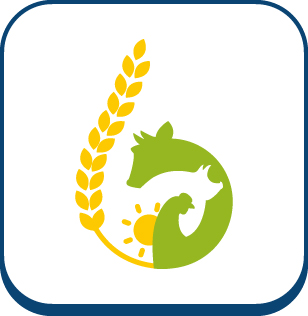Effect of ambient temperature and diet composition on lactation performance of primiparous sows
Ajouter à ma liste
Auteurs :
Quiniou N, Gaudré D, Rapp S, Guillou D
Primiparous Large White x Landrace sows (n=187) were used to investigate the effects of ambient temperature (20 vs. 26°C) and dietary nutrient contents on their lactation performance. The digestible energy (DE) and lysine contents were 13.54 MJ and 8.5 g per kg, respectively, in diet B, and 14.39 MJ and 9.1 g per kg, respectively, in diet H. Animals had free access to feed between the fifth and the 26th days post-partum. Litter size was 11.2 on average over the 27 d-lactation. Increase of temperature from 20 to 26°C resulted in a decreased feed intake (5.53 and 4.21 kg/d, respectively) and piglet growth rate (269 and 238 g/d, respectively), but the BW loss increased (1079 and 1285 g/d, respectively) and the proportion of sows that came into heat within 14 days post-weaning decreased (82 and 74%, respectively). No effect of temperature was observed on backfat thickness loss. Diet composition did not influence significantly body reserves mobilisation nor weaning to oestrus interval but DE intake was higher with diet H (+9.1 MJ/d on average when compared to diet B) as well as piglets' growth rate (257 vs. 247 g/d with diet B).Creep feed consumption during the fourth week was higher in piglets kept at 26°C (261 vs. 217 g/piglet at 20°C).
Fiche technique
Titre :
Effect of ambient temperature and diet composition on lactation performance of primiparous sows
Date sortie / parution :
2000
Référence :
Journées de la Recherche Porcine (Fra), 2000, Vol. 32, p. 275-282









